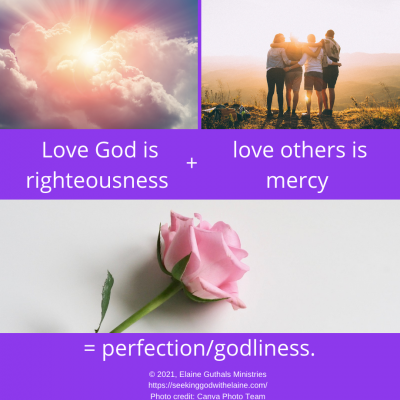In Paul’s prayer in Philippians 1, he showed how much he valued his relationship with the Philippians. This daily devotional looks at how prayer grows not only our relationship with God but also with others.
Nuggets
- God wants us to have loving relationships with other disciples.
- We are to celebrate the growth of others in their relationships with God.
Devotions in the Joy in the Gospel series

Paul had a solid relationship with the Philippians. Because of that, he constantly prayed for them. Let’s look what he told them.
Let's Put It into Context
Here is a running list of what we’ve discussed previously.
Joy in a Special Relationship
“Indeed, it is right for me to think this way about all of you, because I have you in my heart, and you are all partners with me in grace, both in my imprisonment and in the defense and confirmation of the gospel. For God is my witness, how deeply I miss all of you with the affection of Christ Jesus” (Phil. 1: 7-8 CSB)
God wants us to have loving relationships with other disciples.
Raleigh felt it was kind of funny that Paul would say that he has the Philippians in his heart. But it really isn’t. We say others have a place in our hearts.
More importantly, Paul had Jesus in his heart. Jesus was all about loving others.
Paul didn’t want them to think he was just saying it, so he made it into an oath — “For God is my witness …” (Phil. 1: 8 CSB). We just talked about oaths.
Glossary
Paul had another reason to put it as an oath. Raleigh wrote, “And apart from the apostle’s anxiety to be believed, there was a naturalness in his using it which would not belong to any other. He was often alone, separated from his converts, but he carried them about with him in his heart.”
Resource
The Weekly Pulpit thought it could have been an outward expression of an inward feeling. Who better to determine if that is what Paul really felt than God?
Resource
Paul was in prison. Yet, Paul not only didn’t forget about them, but he saw them as partners.
But Paul didn’t know what the outcome of his incarceration would be. If this was going to be the end of Paul, he didn’t want the Philippians to have any doubt about his feelings for them.
Remember, Paul prayed for them daily. They were always on his heart and mind.
We talked in the last devotion about how confident Paul was in the Philippians’ faith. He knew this because they were a part of his ministry.
It may have been Paul that racked up the miles and hefted the pen, but he was not the Lone Ranger in his ministry. There were many that supported him.
The Philippians showed that by sending Epaphroditus to assist him. They may have even sent money with him. They prayed for him, also.
What Paul would have seen as more important than that, the Philippians took his teachings and lived them out in their daily lives. They embraced God and lived to strengthen their relationships with Him.
The Philippians didn’t just love Paul as a person. They loved Jesus enough to follow Paul’s teachings.
If they were partners with him in grace, then they are growing in righteousness. Righteousness is the indwelling goodness that is the result of a solid relationship with God built by a sincere life of conscientious obedience to God’s laws and commandments and from which all virtues flow.
Chrysostom saw “… both in my imprisonment and in the defense and confirmation of the gospel” (Phil. 1: 7 CSB) as a confirmation and a defense.
Resource
God wants us to build relationships with other disciples. He wants us to have unity and work together to further His kingdom.
Joy in Growing Closer to God
“And I pray this: that your love will keep on growing in knowledge and every kind of discernment, so that you may approve the things that are superior and may be pure and blameless in the day of Christ, filled with the fruit of righteousness that comes through Jesus Christ to the glory and praise of God” (Phil. 1: 9-11 CSB)
We are to celebrate the growth of others in their relationships with God.
If they were partners with God in grace, then we are growing in righteousness. The fruits of righteousness are the rewards given at perfection for doing God’s will and growing closer to Him. The rewards are eternal life, peace, access to Him, and hope.
Glossary
Yes, they are given at perfection. No, we don’t have to wait until we get to Heaven to get smaller versions of this. We can have this now.
Think how much that will change our lives when we live them in peace and hope because we have access to God now with the promise of living with Him for eternity.
How do we do that? Raleigh wrote, “Men living the Christian life by distinct intent and aim achieve the noblest thing in actual result.”
Resource
It is contingent on the phrase “… that your love will keep on growing …” (Phil. 1: 9 CSB). No, not by doing the Matthew 25: 35-36.
We must be “… growing in knowledge and every kind of discernment” (Phil. 1: 9 CSB). Discernment means we can evaluate the situation and recognize right from wrong.
To read a related devotion, click the button below.
We get the righteousness through Jesus. It comes when we are united in prayer.
The result is the fruit. Pope wrote, “The fruit or produce of the new method of making us right in Christ is the entire compass of godliness in all its tempers and acts.”
Resource
To me, that reads the fruit of righteousness is godliness.
Yes, we need to grow in our love for each other. But that won’t mean a thing if we don’t grow our love for God and Jesus.
Together those are to the Greatest Commandments.
Glossary

Goadby gave us some other insight about why Paul was confident in the Philippians’ faith. They had been tested and proven faithful. God is also faithful to us.
Resource
Goadby took the fruits of righteousness another way. He reminded us those rewards are based on our love, knowledge, and spiritual graces.

Paul told the Thessalonians that we are to increase in our love for each other. “And may the Lord cause you to increase and overflow with love for one another and for everyone, just as we do for you” (I Thess. 3: 22 CSB).
Lawson noted that the increased love for others only comes through increased knowledge of God. He went on to say that increased knowledge and judgment improved our character.
Resource
Our prayers for other disciples need to be growing, also.
Think about it this way. Airay said the Philippians showed a lot of love, but Paul prayed that they might have the capacity to love even more.
This happens by continual prayer. We ask for more grace and strength to withstand temptation.
The Sanctification Road is all about growing. We are not supposed to stand still in it. Worse yet, we are not supposed to not start it.
The whole purpose of the Sanctification Road is to get us to grow more like God. We are to imitate Jesus. If we are imitating Jesus, we are imitating God. That is the goal.
Sanctification is a process. It doesn’t occur overnight. It isn’t automatic at salvation.
It is our choice. We have to choose to seek God so that we can choose to become like Him.
Searching for and Seeking God
Hearing His Word (Rom. 10: 17).
Reading His Word (Rev. 1: 3).
Praying to Him (Heb. 4: 16).
Studying His Word (Ac. 17: 11).
Meditating on His Word (Ps. 1: 1-2).
Memorizing His Word (Ps. 119: 11).
We have to make sure we don’t backslide. Backsliding is when those who have made a profession of faith return to their sinful lives.
We also don’t want to take fits and starts. We want our journey to be constant.
Why is this important. Airay wrote, “… not to go forward is to go backward, and not to increase in the graces of God’s Spirit is to decrease (Revelation 3:16).”
Resource
We know if we learn a skill and then no use it, we lose at least some of it. We may even lose all of it.
This also falls in line with not to choose God is to choose Satan. We want to choose God.
Airay also noted that some pretend to be growing in knowledge of God. They may fool us, but they are not going to fool God.
The best way to gain knowledge is by reading and hearing God’s Word. But we shouldn’t stop there. We should study and meditate on it.
Until we apply God’s Word to our own lives, it really means nothing to us. We need it to evaluate where we are on the Sanctification Road. We also need it when we have to make a judgment on temptation.
What else do we have to discern?
- If they are false teachers
- If the doctrine they are teaching is true if they are true teachers
We are to abound in doing good things. This is how we please and glorify God.
Okay. I have to work through something Hutchinson said. He wrote, “Love may set on foot many schemes of usefulness, and yet the issue may be failure, because the abounding love has not been in knowledge and discernment. It can never be right to cultivate one central grace to the neglect of the others.”
Resource
- We can love at different levels of intensity.
- We may love deeply, but we may be loving wrong.
- We have to love in knowledge and discernment.
I say many times that we have to be genuine or sincere about our relationship with God. Hutchinson told us that means we have to be “… spotless, pure, clear.” Spotless and pure mean that we are sin-free. I would say that he meant clear to mean the same thing.
Resource
Martin said that the primary way to show that we love someone is to pray for them. He contended that if we don’t have love in our hearts, our profession isn’t sincere.
Resource
Pope talked knowledge being about arranging truth. I can see that.
Let’s say we have a building block that God will always be calling us to salvation. But then we get a new building block when we look at verse and it says that we are to accept him while He is near.
Whoa! Which is it?
We determine what we are going to do with these two building blocks. Are we going to throw the new building block away because it totally goes against what we already know? Or are we going to search the Scriptures to see what insight they give us.
What are we going to do after we have studied the Scriptures? Are we going to accept one stance and not the other, or are we going to try and somehow combine the two if possible? How are we going to go about changing our belief if we accept the new one?
Judgment is determining how we will use the knowledge we have in a given situation to determine our response. This response is how we build our character.
I have to try to figure out what Pope said. God created the ability to go from being unclean to being clean. He didn’t make this automatic and salvation. He tied it to our consecration through sanctification. In order to do this, we need to constantly be watching.
Resource

Making the Connections
Paul’s telling the Philippians that they remained in his heart teaches us a very important lesson. We are supposed to crave the fellowship of other disciples.
God wants us to build community. Paul told us that in Ephesians.
To read a related devotion, click the button below.
Our responsibility is finding where God wants us to be. That doesn’t mean we sit back and wait for Him to plop us down in a church.
If we don’t have a church family, we need to make the rounds until we know where God is wanting us to go.
We need to find our Philippians.
Arnot brought up an interesting point. If God says we are to have no other gods before Him, how can we justify this brotherly love?
Resource
If this life is a learning experience leading up to the next life, then we have to learn how to love. If we don’t have someone down here to love, we can’t do that.
God gives us these relationships for a variety of reasons. He knows we need the fellowship, encouragement, advice, and correction that others give us. He knows how detrimental being alone can be.
It is also a test for us. Can we still give God #1 priority when we have someone down here to love? Or do we forget about Him when we think our needs are being met?
How Do We Apply This?
- We need to find a church family that we can grow a relationship like Paul had with the Philippians.
- We should strive to grow through prayer.
Resource
Prayer is a significant way to increase our relationship with God and others. Consistent prayer helps us on our Sanctification Road.
Father God. We pray that our relationships with You and with others grow until we have secured the fruit of righteousness. We long for the day we see You when eternity starts. Amen.
What do you think?
Leave me a comment below (about this or anything else) or head over to my Facebook group for some interactive discussion.
If you don’t understand something and would like further clarification, please contact me.
If you have not signed up for the email daily or weekly providing the link to the devotions and the newsletter, do so below.
If God has used this devotion to speak with you, consider sharing it on social media.
Pingback: The Foundation for the Fruits of the Spirit – Seeking God with Elaine